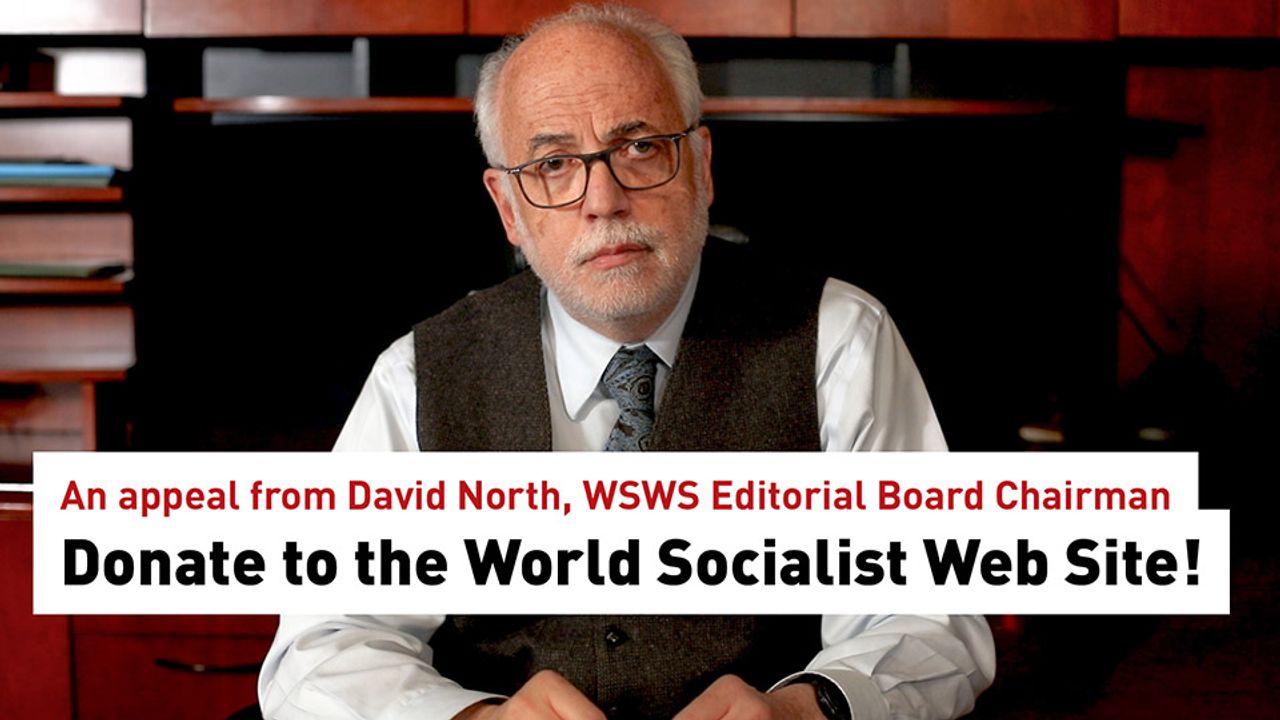Mike Head
Research at Australian universities increasingly is being placed under government control and surveillance, seeking to more closely integrate it into the requirements of the corporate elite, clamp down on criticism and prepare for war-time conditions.
As well as vetoing peer-reviewed research grants, the federal government has imposed a more stringent “national interest” test for future grants and cut overall research funding, except in military-related fields.
Further light was shed on these issues last month, when it was revealed that the Liberal-National Coalition government had secretly overturned 11 Australian Research Council (ARC) arts and humanities grants.
Without notifying the public, or even the research teams involved, that he vetoed the grants, the then Education Minister Simon Birmingham effectively engaged in political and cultural censorship. He rejected grants that had been recommended by the ARC after an intensive selection process. News of his interventions only emerged many months later.
One of the projects was a study of the social impact of the 2017 closure of the General Motors plant at Elizabeth in northern Adelaide, which destroyed thousands of jobs at the factory and related auto industries. The ARC had agreed to fund a project “looking at how an industrial suburb deals with industrial closure and the role of music in that.”
The Elizabeth closure was just part of a wider destruction of full-time employment, which included the shut down of the country’s entire car industry by GM, Ford and Toyota.
Other vetoed grants with political themes included “Rioting and the literary archive,” “Soviet cinema in Hollywood before the Black List 1917-1950” and “Legal secularism in Australia.”
Among the overturned grants for historical studies was “Double Crossings: post-Orientalist arts at the Strait of Gibraltar.” It proposed to examine “the way painters and photographers crisscrossed the 15 kilometres of the most politically contested water in the world—Europe to Africa, Muslim to Christian worlds—in search of arresting images of other cultures.”
In recent months, government figures and media commentators have accused universities of inadequately teaching “Western civilisation.” Yet one of the pillars of modern civilisation is the secular Enlightenment, which encouraged debate and criticism of established ideas.
Because of the secrecy surrounding ministerial rejections, the only previous known veto was in 2005 by Brendan Nelson, the then Coalition education minister. The ARC Act, introduced in 2001, places no obligation on ministers to explain, or even announce, vetoes.
This is despite the fact that ARC grants are highly-competitive. In 2017, the ARC approved only 18 percent of discovery grant applications, and 17 percent of Discovery Early Career Researcher Awards. Only 20 percent of Future Fellowships were awarded in the 2018 round.
Each application is assigned two general assessors—experts from the relevant field of research—then sent to up to six reviewers, who provide anonymous comments and ratings.
Birmingham’s successor as education minister, Dan Tehan, last month belatedly reversed three of the vetoes, insisting the projects were “now markedly different.” At the same time, he delayed this year’s round of ARC grants to allow Prime Minister Scott Morrison’s government to draw up its national interest test.
Tehan announced: “Applicants will be asked to explain the extent to which the research contributes to Australia’s national interest through its potential to have economic, commercial, environmental, social or cultural benefits to the Australian community.”
Previously applicants were asked to state the “benefit and impact” of their research. Now they would be required to provide a 100- to 150-word statement in “plain English” against those criteria, the minister said.
While presented in vague language, the test essentially means tailoring all research to meet the requirements of the Australian financial and business establishment, at the expense of broader and deeper social and historical inquiry.
It is also part of an underlying process of elevating nationalism to the centre stage of all political, social and legal affairs—from demanding that all members of parliament must owe “sole loyalty” to Australia to requiring all immigrants to pass English language examinations and tests of their agreement with “Australian values.”
Moreover, the strengthened “national interest” test was unveiled against a backdrop of a two-year drumbeat of propaganda produced by the “national security” establishment and the corporate media, accusing China of espionage and aggression.
Evidently briefed by the government, Fairfax Media outlets reported on November 10: “Fairfax Media understands the test announced by federal Education Minister Dan Tehan last week has been designed with one eye squarely on China and its growing influence at Australia’s major research universities.
“A report by the Australian Strategic Policy Institute (ASPI) released last week pointed to the booming collaboration between Australian universities and Chinese military scientists.”
This was a reference to a recently-published report by the government-funded thinktank, which has close connections to the US military and intelligence network. Based on unsubstantiated assertions and unclear estimates, ASPI hysterically alleged that Chinese military-linked researchers were working “undercover” in universities in Australia and other US allied countries.
The report received wide coverage around the world, including in the Wall Street Journal, New York Times, CNN, Financial Times and Canada’s Globe and Mail, as well as across Australia.
Despite criticising the government’s grant vetoes, the opposition Labor Party insisted that a Labor government would retain the power to overrule research grants. That is because Labor backs the underlying thrust of the Coalition government’s measures.
Likewise, the National Tertiary Education Union (NTEU), which covers academics and other university workers, denounced the government’s vetoes but remained silent on Labor’s determination to have same power.
With Labor’s support, the government has been integrating universities into US-linked military research, and seeking new provisions to block collaboration with overseas researchers, especially from China. The Australian Department of Defence (DoD) has requested sweeping powers over research, whether directly related to military purposes or not.
Under the Defence Department blueprint, universities, in particular, would be placed under wartime-style scrutiny, prohibited from undertaking collaborative research with countries regarded as US enemies, especially China, while being drawn more tightly into research jointly funded by the Pentagon.
These moves depict Australia as already being on the front line of a battle against Chinese “interference” and plans for war. These scare campaigns are conducted amid the Trump administration’s increasingly overt trade war and military moves to confront China and prevent it from challenging the global hegemony established by the US capitalist class after World War II.
The new “national interest” test also is being imposed amid an intensifying squeeze on research and other university funding. In the latest move, the government recently cut $134 million from the Research Support Program, which funds researchers’ salaries, laboratories and libraries, supposedly to divert the funding to universities in regional areas. This was on top of the second year of a funding freeze on domestic student places, which is driving a new round of wage, job and course cuts by the chronically-underfunded public universities.

